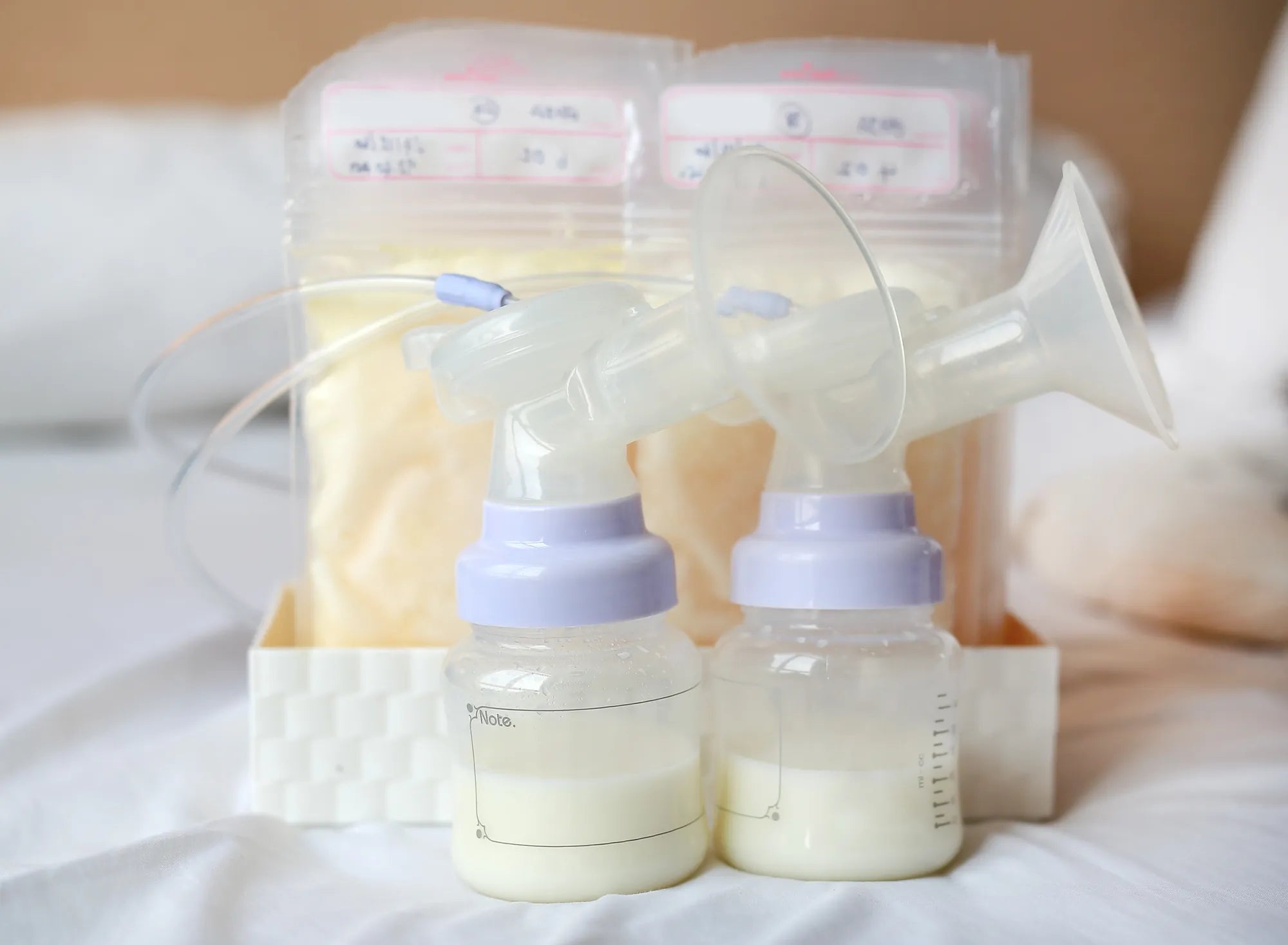Inicio
Pregnancy, Breastfeeding, and Pumping: The Ultimate Guide for Moms
Can Pumping Breast Milk Help to Lose Weight? Exploring the Connection

Can Pumping Breast Milk Help to Lose Weight? Exploring the Connection
For many new mothers, shedding postpartum weight is a top priority. Among the various strategies discussed, one question often arises: Can pumping breast milk help to lose weight? This article delves into the science behind breastfeeding, milk expression, and weight loss, providing a comprehensive look at how these factors may be connected.
The Science Behind Breastfeeding and Weight Loss
Breastfeeding is often touted as a natural way to help new mothers lose weight. The process of producing breast milk requires energy, which can lead to calorie burning. On average, breastfeeding can burn between 300 to 500 calories per day, depending on factors such as the mother's weight, the baby's age, and the frequency of feeding or pumping.
When a mother pumps breast milk, she is essentially mimicking the natural breastfeeding process. This means that pumping can also contribute to calorie expenditure. However, the extent to which pumping aids in weight loss may vary from person to person.
How Pumping Breast Milk Affects Caloric Burn
Pumping breast milk involves the use of a breast pump to extract milk from the breasts. This process stimulates the mammary glands, which in turn triggers the production of milk. The act of pumping requires physical effort, and while it may not be as intense as other forms of exercise, it still contributes to overall calorie burn.
Additionally, the body continues to produce milk even when a mother is not actively breastfeeding or pumping. This means that the metabolic demands of milk production persist, further contributing to calorie expenditure. For mothers who pump regularly, this ongoing calorie burn can add up over time, potentially aiding in weight loss.
Factors That Influence Weight Loss While Pumping
While pumping breast milk can contribute to weight loss, several factors can influence the extent of its effectiveness. These include:
- Frequency of Pumping: Mothers who pump more frequently may experience greater calorie burn compared to those who pump less often.
- Duration of Pumping Sessions: Longer pumping sessions can lead to increased calorie expenditure.
- Individual Metabolism: Each person's metabolism is different, which means that the rate at which calories are burned can vary.
- Diet and Exercise: A balanced diet and regular exercise are crucial components of any weight loss plan, including for mothers who pump breast milk.
The Role of Hormones in Weight Loss
Breastfeeding and pumping breast milk can also influence hormone levels, which may play a role in weight loss. The hormone prolactin, which is responsible for milk production, can have an impact on appetite and metabolism. Some studies suggest that higher levels of prolactin may be associated with increased fat burning, particularly in the abdominal area.
Additionally, the hormone oxytocin, which is released during breastfeeding and pumping, can help the uterus return to its pre-pregnancy size. This process, known as involution, can contribute to a reduction in belly fat over time.
Practical Tips for Weight Loss While Pumping Breast Milk
For mothers looking to lose weight while pumping breast milk, here are some practical tips to consider:
- Stay Hydrated: Drinking plenty of water is essential for milk production and overall health. Staying hydrated can also help curb hunger and support weight loss.
- Eat Nutrient-Dense Foods: Focus on consuming foods that are rich in nutrients but low in empty calories. This can help ensure that both mother and baby are getting the necessary nutrients without excessive calorie intake.
- Incorporate Physical Activity: While pumping can contribute to calorie burn, incorporating regular physical activity into your routine can further support weight loss. Start with low-impact exercises and gradually increase intensity as your body recovers from childbirth.
- Monitor Milk Supply: It's important to ensure that pumping does not negatively impact milk supply. If you notice a decrease in milk production, consider adjusting your pumping schedule or consulting a lactation consultant.
Potential Challenges and Considerations
While pumping breast milk can aid in weight loss, it's important to be aware of potential challenges and considerations. For example, some mothers may find that pumping leads to increased hunger, which can make it difficult to maintain a calorie deficit. Additionally, the demands of pumping and caring for a newborn can be physically and emotionally taxing, which may impact weight loss efforts.
It's also important to remember that weight loss is a gradual process, and results may vary. Patience and consistency are key, and it's essential to prioritize overall health and well-being over rapid weight loss.
The Importance of a Balanced Approach
Ultimately, the question of whether pumping breast milk can help to lose weight is not a straightforward one. While pumping can contribute to calorie burn and support weight loss, it is just one piece of the puzzle. A balanced approach that includes a healthy diet, regular physical activity, and self-care is essential for achieving and maintaining weight loss postpartum.
Moreover, it's important to focus on the broader benefits of breastfeeding and pumping, such as providing essential nutrients to your baby and fostering a strong bond. Weight loss should be viewed as a secondary goal, with the primary focus being on the health and well-being of both mother and baby.
So, can pumping breast milk help to lose weight? The answer is yes, but with some caveats. By understanding the science behind it and adopting a balanced approach, new mothers can harness the potential weight loss benefits of pumping while prioritizing their overall health and the well-being of their baby.
Compartir


